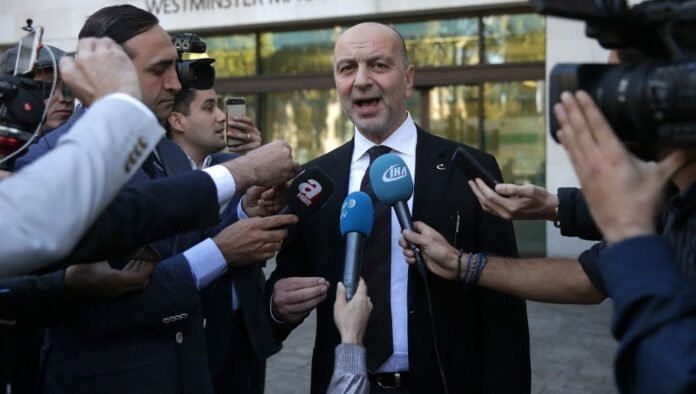Turkey’s state-run Savings Deposit Insurance Fund (TMSF) will sell two mansions owned by Akın İpek, a businessman currently living in exile in the UK whose assets in Turkey were seized in 2016 over his alleged links to the Gülen movement, Turkish Minute reported on Tuesday, citing the Patronlar Dünyası news website.
Ankara accuses the Gülen movement, a faith-based group invested in education and relief work throughout the world and inspired by Muslim cleric Fethullah Gülen, of masterminding a failed coup in July 2016. The movement strongly denies any involvement in it.
Following the failed coup, the Justice and Development Party (AKP) government launched a massive purge targeting real and alleged members of the movement under the pretext of an anti-coup fight, removing over 130,000 people from civil service jobs.
The AKP designated the group as a terrorist organization before the coup and seized schools, universities, media outlets, companies and their buildings and the assets of individuals, corporations and organizations that were believed to have had ties to the movement.
More than 1,100 companies have been transferred to Turkey’s TMSF, most of them following the failed coup. Journalists from confiscated newspapers and TV stations have been arrested, replaced and jailed.
İpek’s two mansions, the “White Mansion” and “Brown Mansion,” which are among the properties belonging to Koza İpek Holding, which was transferred to the TMSF in 2016, will be offered for sale in an auction on June 27.
The starting price for the two mansions is TL 750 million ($23.3 million) and they are expected to fetch more than TL 1 billion ($31 million), according to Patronlar Dünyası.
In 2016, 22 luxury cars belonging to Koza İpek Holding, including Bentleys, Ferraris and Lamborghinis, were sold after the holding’s transfer to the TMSF.
President Recep Tayyip Erdoğan has been targeting followers of the Gülen movement since the corruption investigations of December 17-25, 2013, which implicated then-prime minister Erdoğan, his family members and his inner circle.
Dismissing the investigations as a Gülenist coup and conspiracy against his government, Erdoğan designated the movement as a terrorist organization and began to target its members.
A report last year titled “Persecutory Confiscation Amounting to Crimes Against Humanity: Case of the Gülen Group,” exposed the vast scale of property confiscations in Turkey targeting the movement, with an estimated value of $50 billion and affecting over 1.5 million individuals in what the authors call systematic and widespread violations of domestic and international law that amount to “crimes against humanity.”















